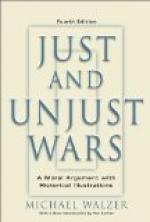Marshall Langham had not quitted his seat. There in his remote corner under the gallery, his blanched face framed by shadows, his father’s glance found him. With his hand resting tremulously on the jamb of the door as if to steady himself, the judge advanced a step. Once more his eyes strayed in the direction of his son, and from the gloom of that dull corner which Marshall had made his own, despair and terror called aloud to him. His shaking hand dropped to his side, and then like some pale ghost, he passed slowly before the eager eyes that were following his every movement to his place behind the flat-topped desk on the raised dais.
As he sank into his chair he turned to the clerk of the court and there was a movement of his thin lips, but no sound passed them. Brockett guessed the order he had wished to give, and the big key slid around in the old-fashioned lock of the jury-room door. Heavy-visaged and hesitating, the twelve men filed into court, and at sight of them John North’s heart seemed to die within his breast. He no longer hoped nor doubted, he knew their verdict,—he was caught in some intricate web of circumstance! A monstrous injustice was about to be done him, and in the very name of justice itself!
The jurors, awkward in their self-consciousness, crossed the room and, as intangible as it was potent, a wave of horror went with them. There was a noisy scraping of chairs as they took their seats, and then a deathlike silence.
The clerk glanced up inquiringly into the white face that was bent on him. A scarcely perceptible inclination of the head answered him, and he turned to the jury.
“Gentlemen, have you arrived at a true verdict, and chosen one of your number to speak for you?” he asked.
Martin Howe, the first man in the front row of the two solemn lines of jurors, came awkwardly to his feet and said almost in a whisper:
“We have. We find the defendant guilty as charged in the indictment.”
“Mr. Howe, do you find this man guilty as charged in the indictment?” asked the clerk.
“I do,” responded the juror.
Twelve times the clerk of the court, calling each man by name, asked this question, and one by one the jurors stood up and answered:
“I do.”
CHAPTER TWENTY-THREE
THE LAST APPEAL
One raw morning late in April, Mark Leanard, who worked at Kirby’s lumber-yard, drove his team of big grade Percherons up to Kirby’s office by the railroad tracks.
“What’s doing?” he asked of Kirby’s clerk.
The clerk handed him a slip of paper.
“Go round and tell Mitchell to get you out this load!” he said.
Leanard went off whistling, with the order slip tucked back of his hatband. In the yard, Mitchell the foreman, gave him a load “of sixteen-foot” pine boards and “two by fours”.




